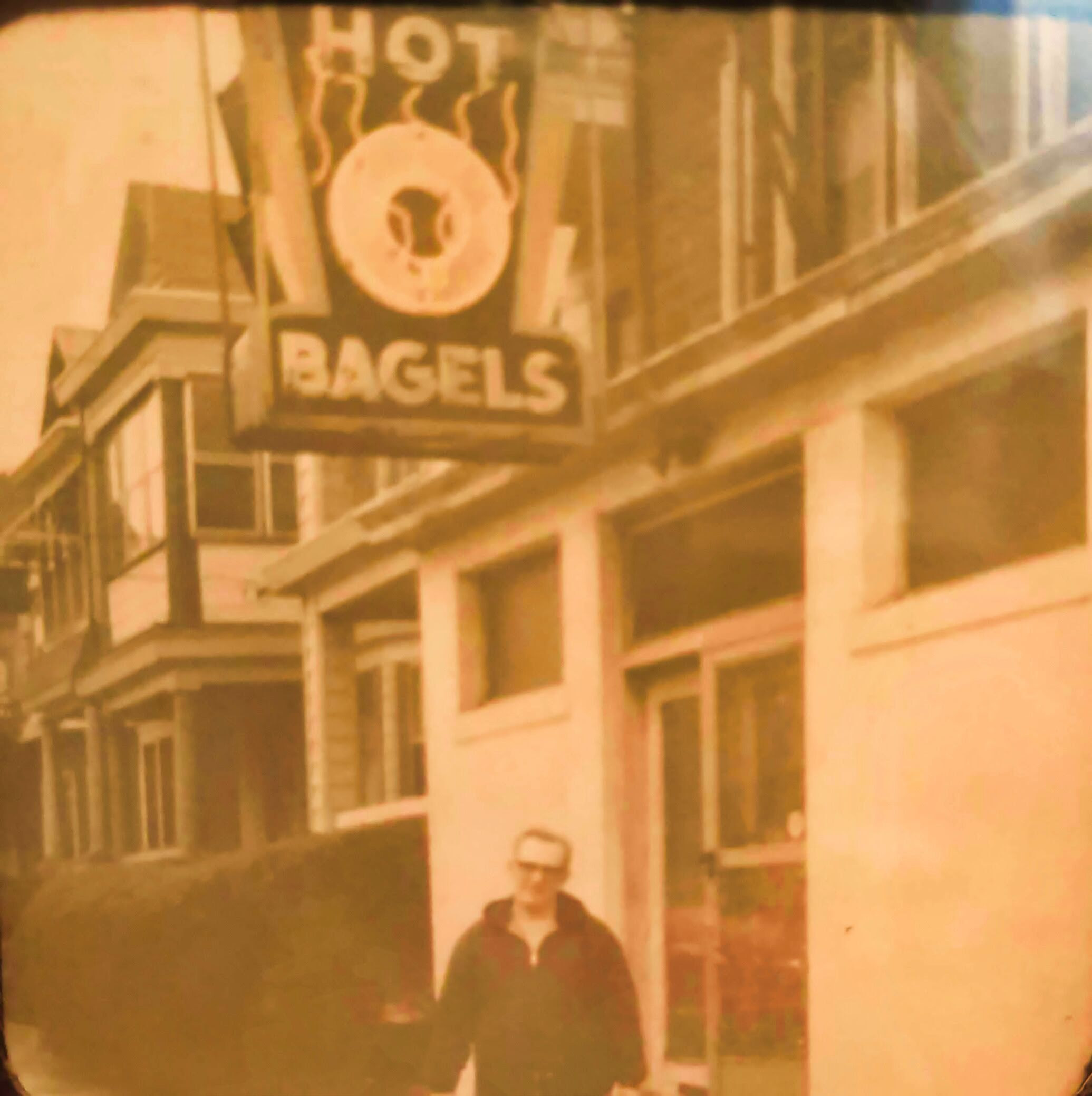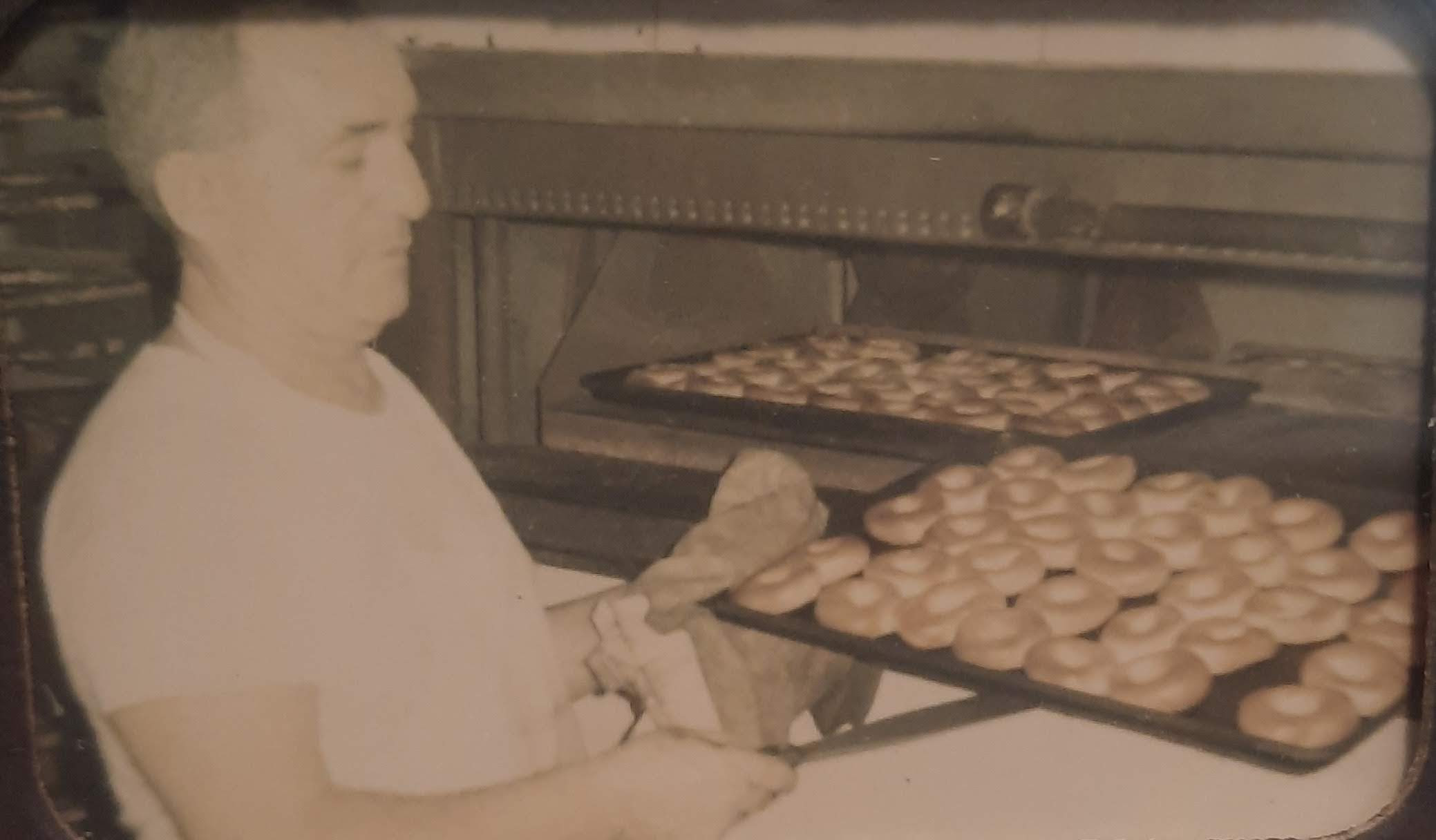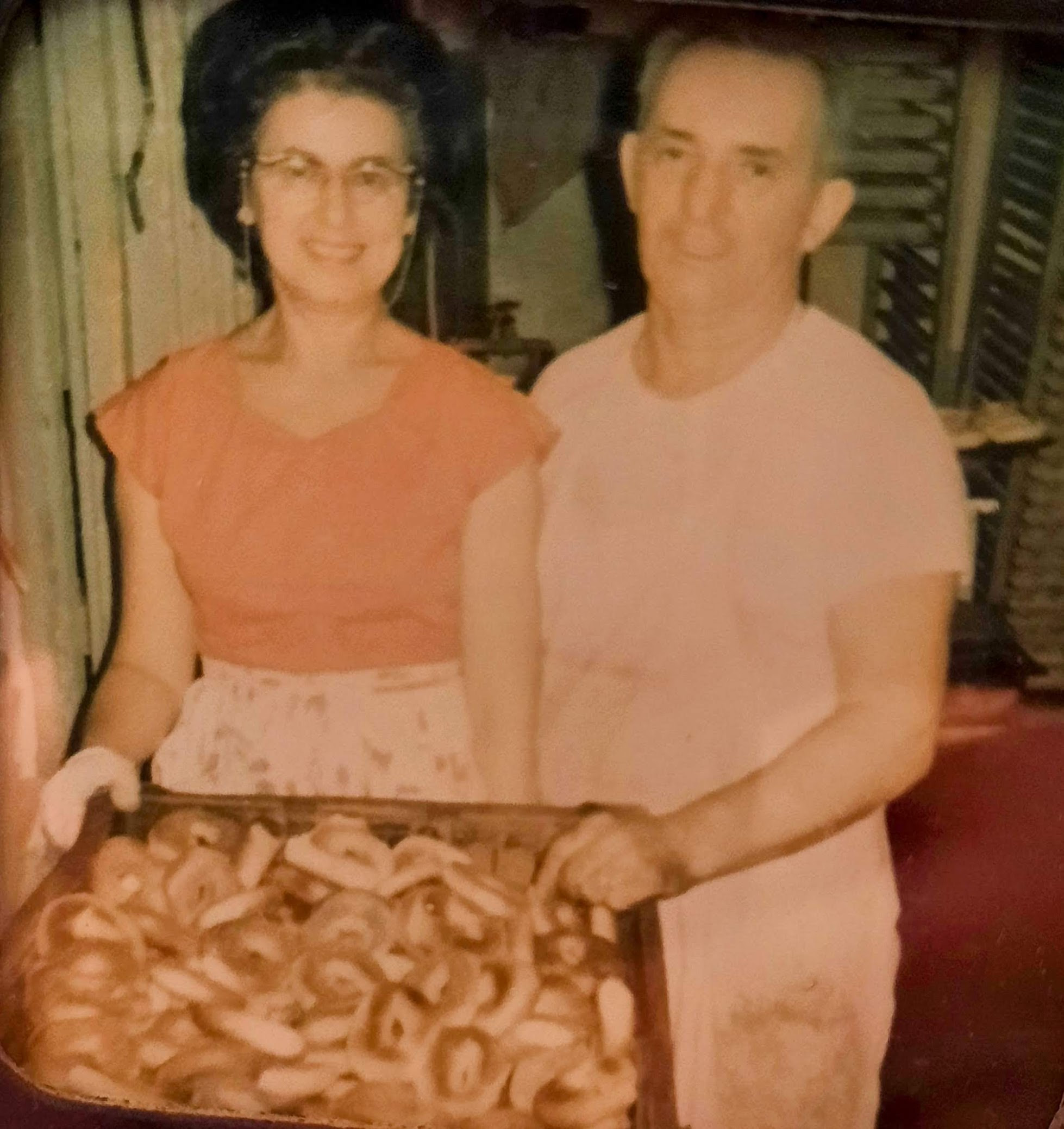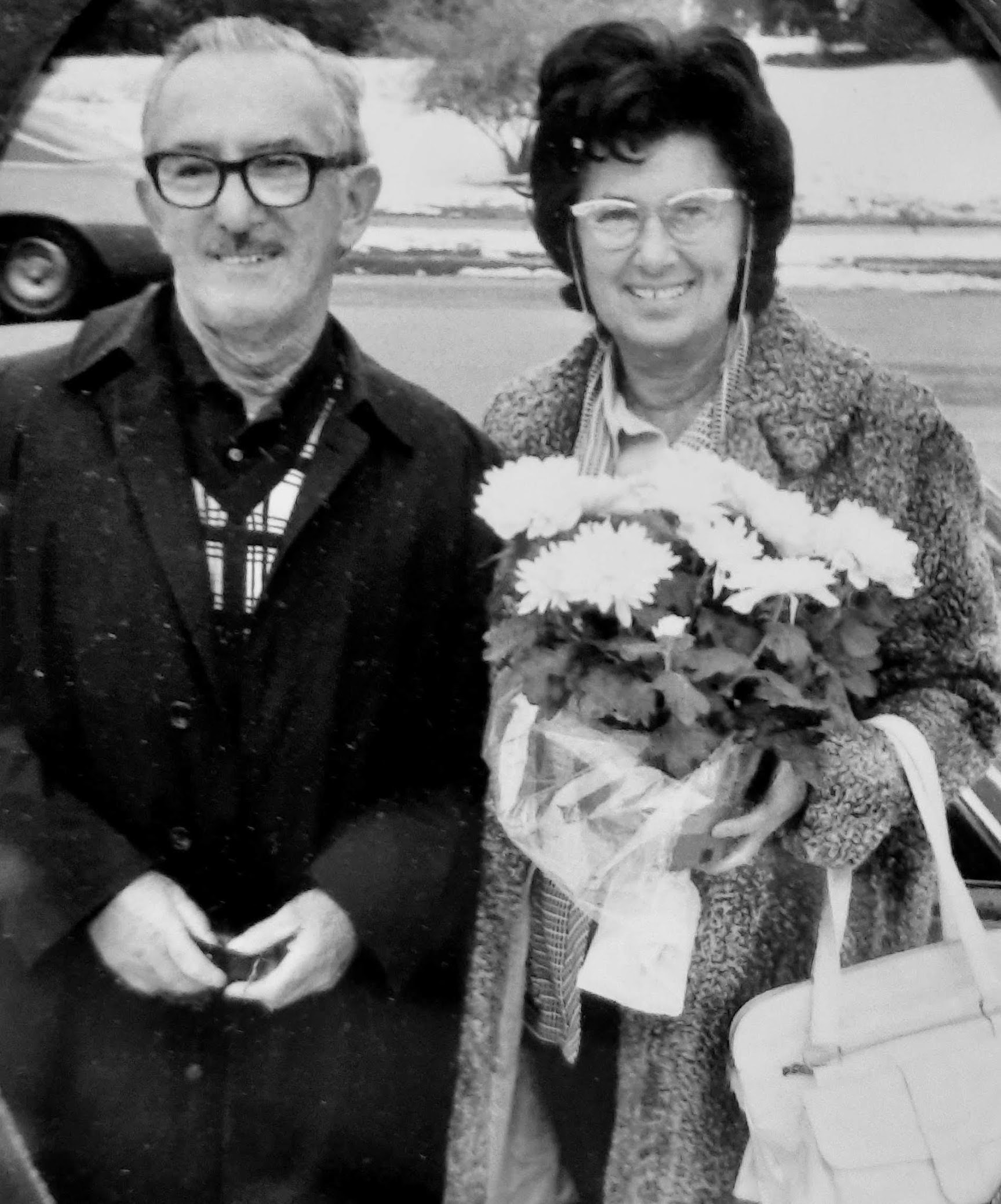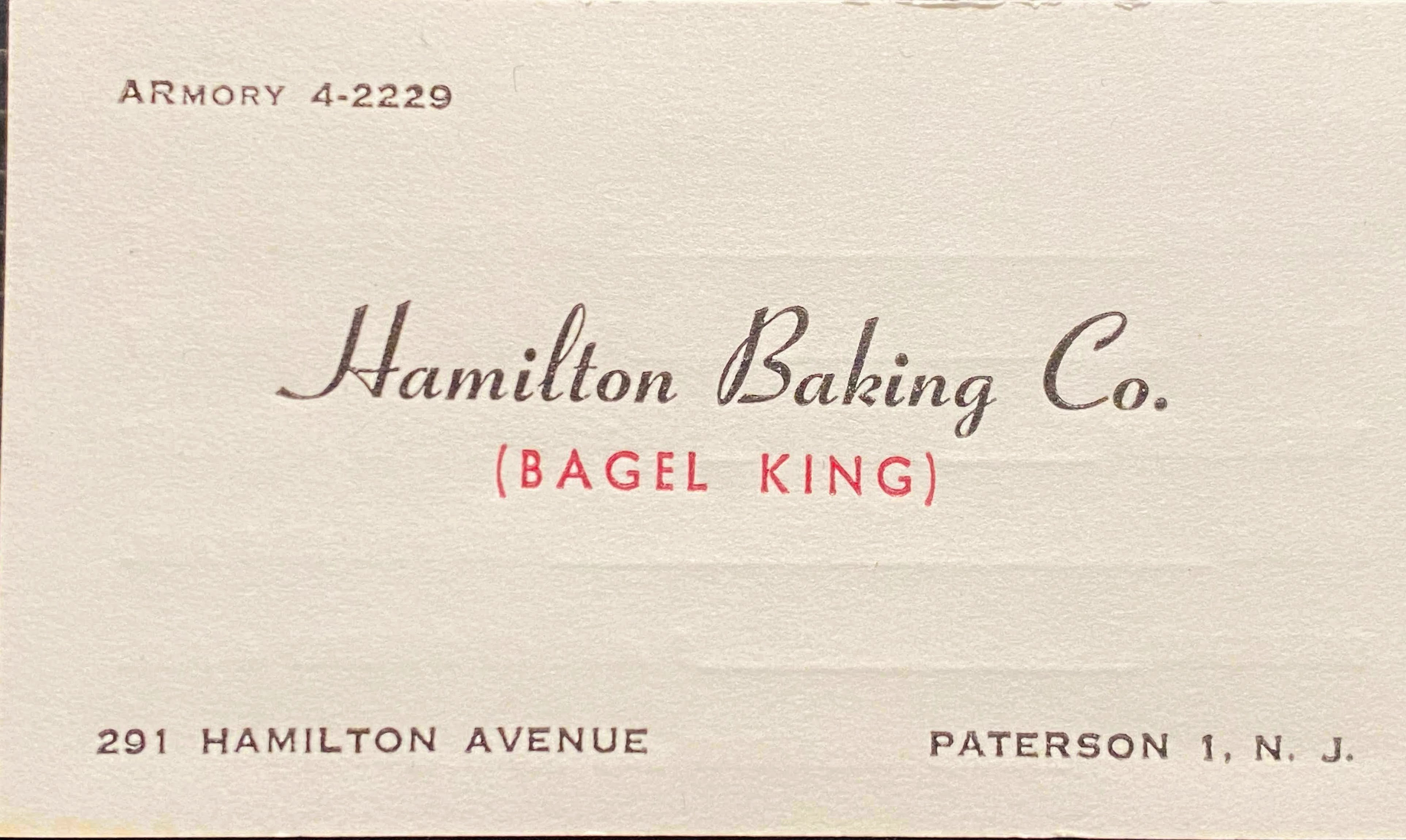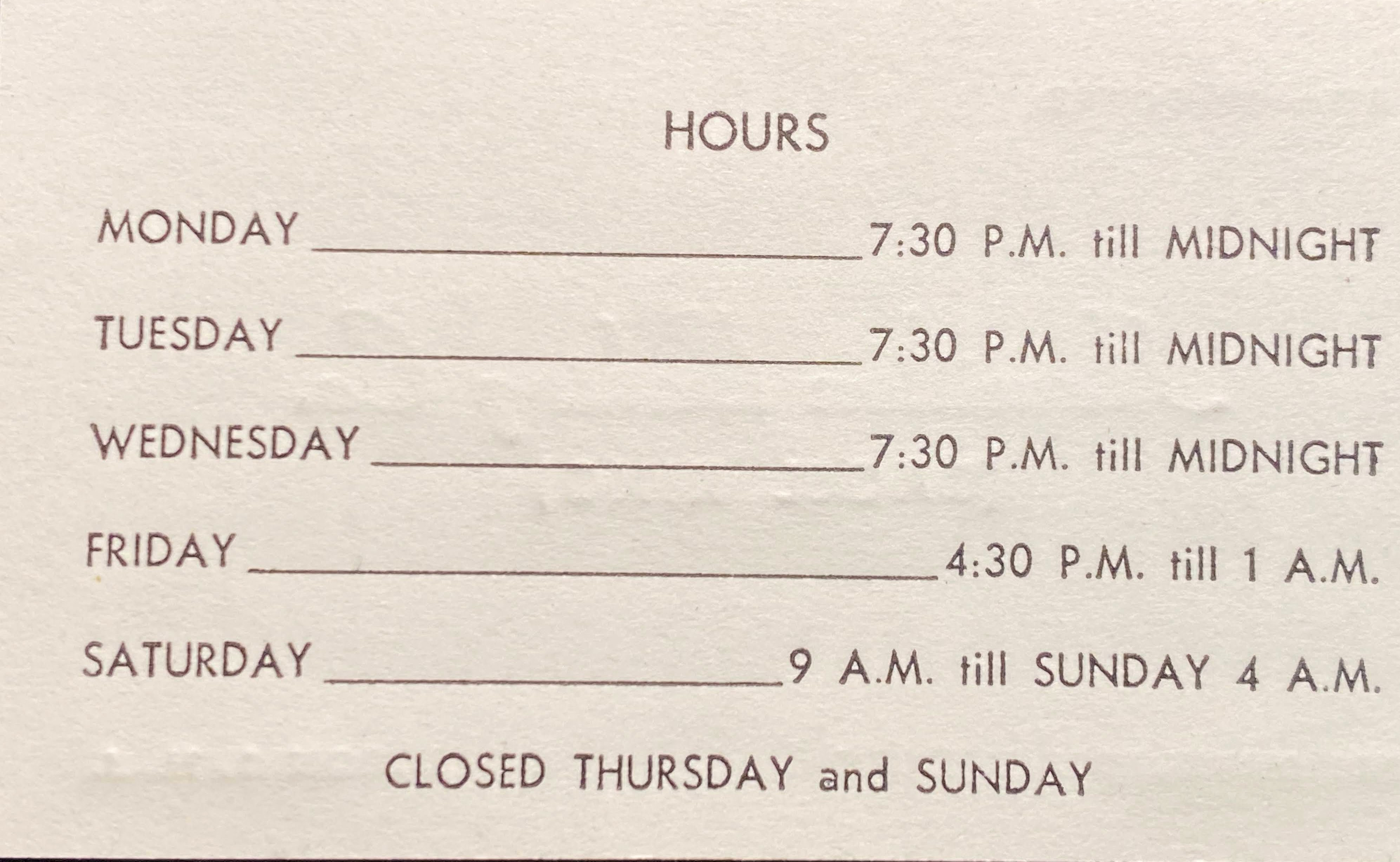"Living Above the Bagel Shop"
Steven Cohen and Leonard Cohen are the surviving sons of Morris (Bake) Cohen and Doris
(Babe) Cohen. They were affectionately called the Bagel King and the Bagel Queen, but Bake
was simply known as the “Paterson Bagel Man.” Sadly, our younger brother Alan Cohen died of
Covid-19 at the beginning of the pandemic.
Our Paternal grandfather, Samuel (Zalman) Cohen was a baker and owned the Carroll Street
Bakery, which we understand was a general bakery, but also made bagels. In the 1940’s he
and Bake established the Bagel Shop at 291 Hamilton Avenue. Although Samuel continued to
work there, Bake took ownership. Leonard (Len) and I began our lives living in an apartment at 368 Hamilton Avenue in Paterson.
Len was born in 1942, Steven was born in 1945 and Alan in 1947. Circa 1947 we moved a block away and began to live above the Bagel Shop at 291 Hamilton Ave. That was near the intersection of Hamilton Ave and Graham Ave (now Rosa Parks Blvd). Walter’s Drug store was at the corner of Hamilton and Graham, and we were next to Walter’s. Across the street was the Bragg Funeral Home (an African American owned Funeral Home).
Many remember walking through the narrow alleyway of the Bagel Shop building to get to a door about ¾ of the way toward the back of the building. Once you walked through that door you were greeted by wonderful sights, sounds and smells. The door did not lead to a showroom or counter area. You did not walk into a bagel store, you walked into the actual functioning bagel bakery. The door took you into the room where the oven was going, making the wonderful bagels. You stood two feet from the oven, and a little further from the boiler where the raw bagels were boiled before being put into the oven. You saw the people baking the bagels right in front of you.
Depending on when you came into the bagel shop you saw Bake Cohen baking the bagels or one of his long-time employees, Paul Hinton or Joey Aielio working the oven. There was never a question about whether the bagels were fresh or not, because you saw them being taken out of the oven and deposited into a large wooden box. If you came to the shop on a Saturday there were long lines of people in the alleyway waiting to get in. Our mother Doris (Babe) Cohen was standing there to grab the hot bagels from the box, put them in a bag and take the payment. The bagels were so hot, she had to wear gloves. If you had a small child with you, or if she knew that you had small children at home, she gave you the complimentary mini bagels for the children. She was there on Saturdays from morning until about 9 PM.
At one point, the cost of flour went up and the price of baked goods everywhere increased. They had to raise price of a bagel from 2 cents to 3 cents. Everyone wanted fresh bagels for Sunday breakfast or brunch! The end of the alleyway led to a backyard and a stairway going to the second floor. That is where we lived until we moved to Fair Lawn in 1954. It was a small living space with a living room, a bedroom for our parents, a large bedroom for the three boys, and a kitchen.
It was a sensory delight. We had all of the sounds, smells, and temperature from the bakery below. Bake would start work at about 9:30 at night to make the dough and bake the bagels so they could be delivered to the stores before they opened in the morning. He would come home about 9 in the morning. For years he did it all; make the dough, bake the bagels and then deliver the bagels to the store and bakeries. In later years he had a driver to make the deliveries and Paul or Joey did some of the baking. That means that in the middle of the night, we heard the loud whirring and groaning of the mixing machine filled with hundreds of pounds of flour and other ingredients. The oven was right under the boy’s bedroom. In the winter it was a wonderful delight to be cozy and warm from the rising heat of the bagel oven. In the summer it was not a delight and could be brutally hot. Those were the days when air conditioners were not common. We did have a window unit in the living room, but the bedrooms had the normal summer heat and the addition of all the heat from the bagel oven below. The best sensory experience were the smells; the wonderful, delightful smells of fresh baked bagels permeating every pore of the upstairs living space. Also, you cannot imagine the convenience. If we wanted a hot bagel, just go downstairs, and get one—or more. I remember going downstairs and eating a full dozen bagels that came right out of the oven.
Living above the bagel shop made it easy for us to help. As soon as we were old enough, we worked in the bagel shop. Our father would find small tasks for us when we were small and increased the complexity and scope of the tasks as we grew. There was always a chore for us to do. We never questioned the chores, as this was the family business, and it was natural for us to help. In addition, we were always paid for the work we did in the shop.
The process of making bagels is complicated. First the dough must be made. There was a giant mixing machine. The flour bags would have to be moved from the storage room to the mixer. We watched our father take a 100-pound sack of flour and throw it on top of his shoulder. While maintaining his balance he would lift a second 100-pound sack of flour on his other shoulder. He would put his hands on his hips for balance, and walk from the storage room to the mixing room with the 200 pounds of flour on his shoulders, and then remove the bags from his shoulders and pour them into the mixer. He would add in the other ingredients. He would repeat this throughout the night. The next step was the arduous job of taking hundreds of pounds of dough out of the mixing machine, cutting it, weighing the pieces, and shaping them in into balls of dough. The balls were put in a wooden box and set aside to rise. There were boxes piled on boxes of the dough balls. At the prescribed time, each dough ball was taken out, squashed down, and put back to rise a second time. When that time elapsed, each ball was flattened out, put into a round pan and placed in hand-operated pressing machine. By applying your body weight to the lever of the pressing machine, it would flatten the dough and create 36 segmented pieces of equal size. It was then time to roll the dough into the bagel shape. The full time and part time employees would all roll the dough. That is a job all 3 Cohen kids would also do. We would take one of the segments, roll it with our hands on a workbench until it was long. Then we would wrap it around our hand and use a rolling pressure to join the two ends. The much remembered mini-bagels that were given to the children that accompanied their parents to the bagel shop, were specifically rolled by us when we were kids, as our small hands made it easy to roll out a mini-bagel. The now bagel-shaped- dough would then be cooked in boiling water for a while. After that, the hot dough bagels were placed in pans. Some were then covered with poppy seeds, others were unseeded. They then were placed in the oven for baking.
Those who remember coming into the bagel shop would then see the bagels taken out of the oven and placed in the wooden box. In the back room, we were counting out bagels, 5 dozen to a bag, to prepare for delivery to the many bakeries, delis, and grocery stores and restaurants in the greater Paterson area. Almost every bakery, grocery store, or restaurant in the greater Paterson area was selling the bagels that our father made.
At one time a bagel maker from New York City tried to encroach on the greater Paterson market. They promised to give our father’s wholesale customers free bagels for 2 weeks as a way to enter the greater Paterson Market. Many of our father’s customers refused the offer. Some who accepted the offer found that no one wanted to buy the competitors product and after a few weeks they left Paterson. This showed the loyalty of our customers and the unbeatable taste and quality of our bagels. Senator Lautenberg once wrote about growing up in the neighborhood and walking down the alley to the bagel shop. Once, an out-of-town person came in and introduced himself to Babe. It was Justice Arthur Goldberg of the Supreme Court.
Growing up as the children of the Bagel King imparted a sense of celebrity. Our parents were a part of the center of Jewish life in Paterson. Everyone knew them. We would be on vacation in Miami Beach and there would always be a shout from someone—hello Bake! Wherever we went someone would recognize him. There was a great sense of pride being the children of the Bagel King.
Working in the bagel shop and watching our father work, taught us a valuable work ethic at an early age. Watching our father interact with people also taught us about ethics and kindness. When eating in restaurants sometimes the check would have an error. In those days they were added by hand. If there was an overcharge, he would point that out. If there was an addition mistake and we were charged less, he would also point that out. As a child, I asked him why. He simply replied because it is the right thing to do. On another occasion when I was a teenager, I was with him in the middle of the night delivering bagels. He saw a homeless person on the street. He pointed and said that person has not eaten for quite a while. He pulled over and brought the homeless person into an open restaurant and paid for his meal. I saw other homeless people wave to him and greet him. It was clear to me that he helped many. I asked him why he never said anything about it, he simply replied that there was no need to mention it. He taught us by example.
At a time when segregation was still rampant and legal in the South and practiced more quietly in the North, his workforce was fully integrated. About half of the workers were Caucasian and the other half were African American. He always said he tried to hire the best workers and skin color was not important. Again, another lesson by example.
As most parents of that generation, he did not want us to follow in his footsteps and continue the bagel business. He wanted us to go to college and find our own way. The 3 brothers succeeded in that. Steven and Alan became psychologists, and Len became a chiropractor.
We are proud of our heritage of growing up in the bagel shop. Our father was proud of our achievements. We hope that the paths we have taken in our lives truly honor our father and mother.
Steven Cohen
